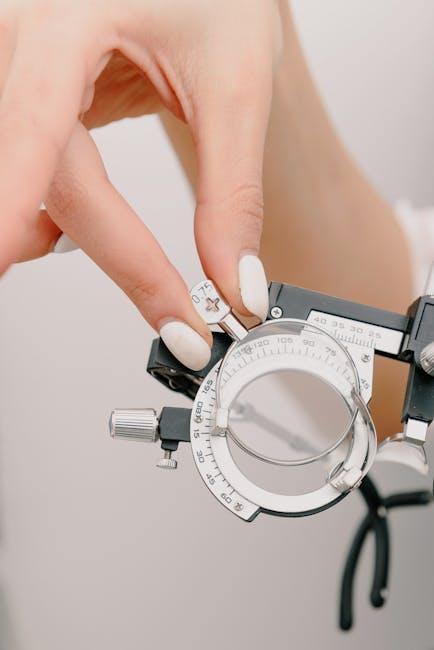
A Double-Blind Randomized Clinical Trial on the Suggestive Effect of Anxiety Management Questionnaires in Dental Emergencies – Frontiers
Dental emergencies can be highly stressful experiences for patients, often exacerbated by anxiety that impacts not only the present treatment but also future dental care adherence. Recent clinical research published in the journal Frontiers sheds light on a fascinating aspect of anxiety management — the suggestive effect of anxiety management questionnaires during dental emergencies.
In this article, we’ll dive deep into what this double-blind randomized clinical trial discovered, why it matters for dental practitioners and patients alike, and practical takeaways to improve anxiety handling in urgent dental care.
Understanding Anxiety in Dental Emergencies
Anxiety related to dental emergencies arises from a combination of pain anticipation, fear of procedures, and unpredictability about outcomes. This can lead to:
- Increased heart rate and blood pressure during treatment
- Heightened perception of pain
- Avoidance or delay in dental visits
- Negative psychological impact on long-term oral health management
Effective anxiety management strategies are crucial for improving patient cooperation and clinical results.
What Is a Double-Blind Randomized Clinical Trial?
Before delving into the study specifics, let’s clarify key terms in clinical research:
- Randomized: Participants are randomly allocated to different intervention groups to eliminate selection bias.
- Double-Blind: Neither the participants nor the researchers know who receives which intervention, preventing bias in treatment administration and assessment.
- Clinical Trial: A research study conducted with patient volunteers to evaluate medical, surgical, or behavioral interventions.
This rigorous design ensures high-quality evidence, offering valid and reliable conclusions about a treatment or intervention.
The Study: Suggestive Effect of Anxiety Management Questionnaires
The trial aimed to investigate whether simply filling out anxiety-related questionnaires can create a suggestive therapeutic effect, potentially reducing patients’ anxiety levels during dental emergencies.
Study Design Highlights
| Feature | Description |
|---|---|
| Participants | 120 patients presenting with dental emergencies |
| Interventions | Anxiety questionnaires vs. neutral questionnaires (control) |
| Blinding | Double-blind (patients and clinicians blinded) |
| Outcome Measures | Subjective anxiety levels, physiological parameters (heart rate, blood pressure) |
| Duration | Assessment immediately before and after questionnaire completion |
The patients were randomized into two groups: one group filled out questionnaires designed specifically to manage and reduce anxiety by prompting reflection and reassurance, while the control group completed neutral, unrelated questionnaires.
Key Findings
- Reduction in anxiety: Patients completing the anxiety management questionnaires reported significantly lower anxiety levels compared to controls.
- Physiological changes: The intervention group showed reductions in heart rate and systolic blood pressure, objective indicators of lowered anxiety.
- Suggestive effect validated: The mere act of completing the targeted questionnaire exerted a suggestive calming influence during stressful dental emergencies.
These findings confirm that psychological tools used before treatment can have an immediate impact on patient anxiety, enhancing overall clinical experience.
Benefits of Using Anxiety Management Questionnaires in Dental Emergencies
Implementing structured anxiety management questionnaires can offer numerous benefits in urgent dental care settings, including:
- Improved patient cooperation: Lower anxiety promotes easier communication and compliance.
- Better clinical outcomes: Patient relaxation can lead to smoother procedures and better pain management.
- Non-invasive and cost-effective: Questionnaires require minimal resources but yield significant psychological benefit.
- Enhanced patient satisfaction: Feeling heard and supported improves trust and repeat visit likelihood.
Practical Tips for Dental Professionals
To reap the benefits found in this clinical trial, dental care teams can integrate anxiety management questionnaires effectively:
- Administer Before Procedures: Have patients fill out targeted questionnaires as part of intake during emergencies.
- Train Staff: Educate all front-line staff about the purpose and impact of these tools to ensure consistent encouragement.
- Customize Questionnaires: Tailor questions to the clinic’s patient demographics and common anxieties.
- Follow-up Mentally: Use questionnaire responses to reassure patients verbally before treatment.
- Combine with Other Interventions: Such as gentle communication and relaxation techniques for holistic anxiety reduction.
Case Study: Real-Life Impact
Mrs. L., a 35-year-old patient came to an emergency appointment fearing tooth extraction. When asked to complete a brief anxiety management questionnaire, she reported high initial anxiety. Post-questionnaire, her self-reported anxiety decreased by 30%, and her heart rate fell from 96 bpm to 82 bpm. The dentist noted this calmed demeanor enabled a more efficient and less stressful extraction procedure.
This case exemplifies how even a simple intervention like a questionnaire can positively influence the emergency dental care journey.
Conclusion
This double-blind randomized clinical trial, highlighted by Frontiers, underscores the powerful suggestive effect of anxiety management questionnaires in dental emergencies. By leveraging these psychologically supportive tools, dental practitioners can alleviate patient anxiety, improve physiological stress markers, and foster a better treatment environment.
Integrating these questionnaires into routine emergency dental care not only enhances patient outcomes but also creates a more compassionate, patient-centered approach. Practitioners are encouraged to implement these findings to transform anxious dental visits into more peaceful and efficient experiences.
If you’re a dental professional seeking to elevate anxiety management in your practice, consider adopting these validated questionnaires today — your patients will thank you.


